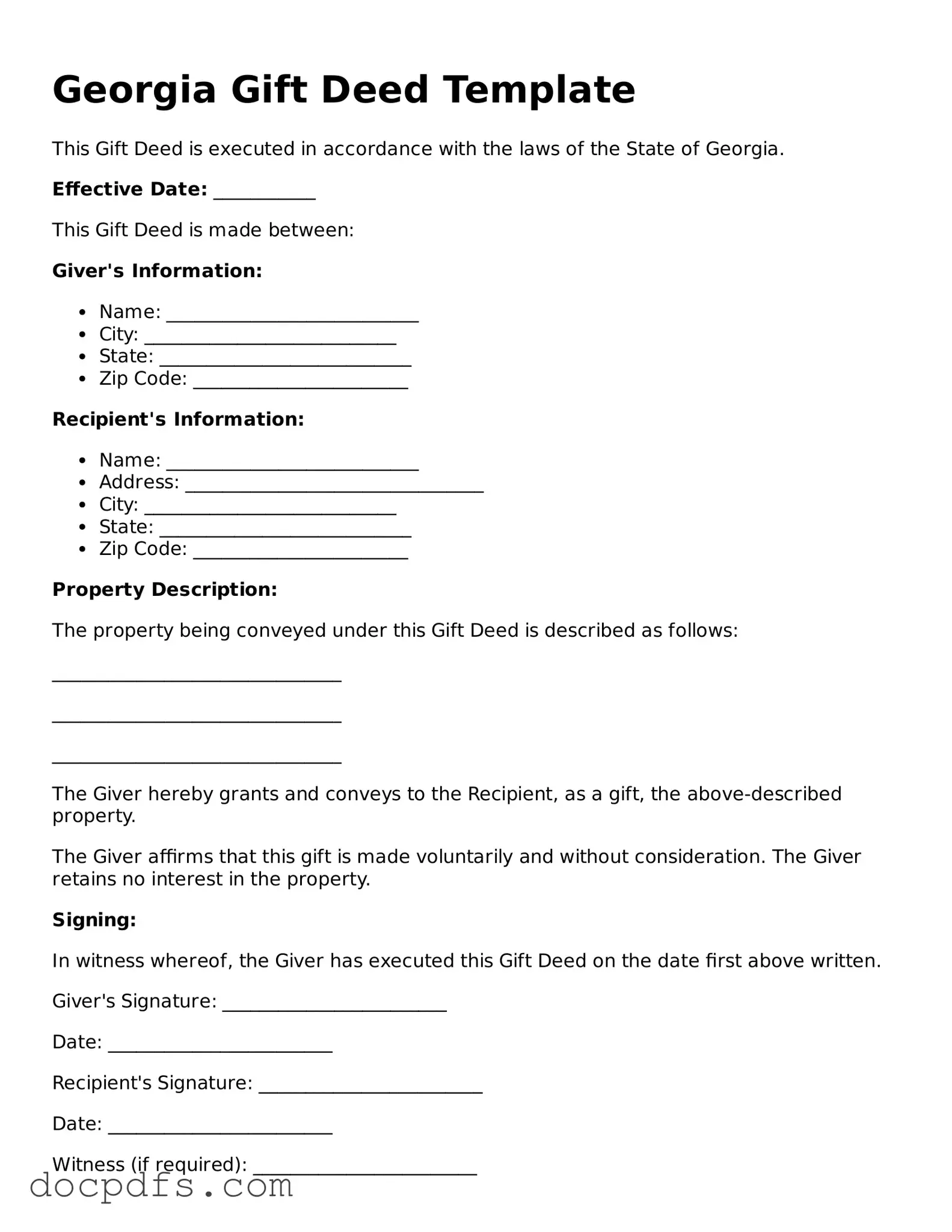Free Georgia Gift Deed Form
A Georgia Gift Deed form is a legal document used to transfer property from one person to another without any exchange of money. This form allows individuals to give real estate as a gift while ensuring that the transaction is recorded properly. Understanding how to use this form can simplify the process of making a generous gift to a loved one.
Open Gift Deed Editor Now

Free Georgia Gift Deed Form
Open Gift Deed Editor Now

Open Gift Deed Editor Now
or
⇓ Gift Deed
Finish this form the fast way
Complete Gift Deed online with a smooth editing experience.